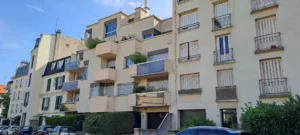Donating Property in Spain as a Foreigner: Inter Vivos vs. Mortis Causa
Key Differences for Foreigners Donating Property in Spain: Inter Vivos vs. Mortis Causa
For foreigners donating property in Spain, understanding the distinction between inter vivos and mortis causa donations is essential not only to determine the legal nature of the transaction, but also the law applicable to it and its tax treatment.
Moreover, An inter vivos donation is perfected and produces its effects during the lifetime of both donor and donee. As from its execution, the donor loses title to and free disposal of the donated asset, although he may reserve limited rights, such as a usufruct, in which case the donation has post mortem effectiveness, that is, it entails a present transfer, although enjoyment or full availability of the property is deferred until the donor’s death.
By contrast, a mortis causa donation only produces effects upon the donor’s death. While alive, the donor retains ownership and free disposal of the asset and may revoke the donation at any time. For this reason, the case law — since the Supreme Court Judgments of 24 February 1986, 9 June 1995 and 5 April 2016 — equates this type of donation to a testamentary disposition governed by the rules on testate succession (Article 620 of the Civil Code).
How Spanish Courts Determine the Legal Nature of a Donation
Both types of donations may be subject to a condition, a term, or a right of reversion. According to the Supreme Court and the Directorate-General for Legal Certainty and Public Faith (Resolution of 5 August 2025), the decisive factor is whether the donor retains free disposal of the asset during his lifetime.
If the donor continues to regard himself as owner while alive, the donation — even if conditional or reversible — will be classified as mortis causa. Accordingly, where a present transfer occurs (though enjoyment or consolidation of rights is deferred until death), it qualifies as inter vivos.
The Supreme Court holds that when the donor may recover the property at will, or the donee is barred from disposing of it during the donor’s lifetime, no true transfer takes place — only a retention of title — and the arrangement is deemed a mortis causa donation.
Tax and Legal Implications for Foreigners Donating Property in Spain
Tax Treatment of Inter Vivos Donations by Non-Residents in Spain
As a contractual act, an inter vivos donation falls under Regulation (EC) No 593/2008 (Rome I).
For immovable property, the lex rei sitae applies — i.e., Spanish law. Consequently, the donation is subject to Spanish Inheritance and Gift Tax (ISD) under the “donations” category, as set by the Autonomous Community where the property is located.
If the donor is a non-resident, his home country may tax the latent capital gain via personal income tax (or equivalent), as the transfer is deemed to realise such gain. However, in Spain, the donor is generally exempt from capital gains tax on property donations.
Separately, the transaction triggers the municipal plusvalía (Tax on the Increase in Value of Urban Land), payable to the local council where the property is situated.
Tax Treatment of Mortis Causa Donations by Non-Residents in Spain
A mortis causa donation is treated as a succession and falls under Regulation (EU) No 650/2012 (the EU Succession Regulation).
Typically, The applicable law is generally that of the deceased’s habitual residence at death — unless he expressly elected the law of his nationality.
Regardless of the donor’s residence, the acquisition of Spanish immovable property is subject to ISD under the “inheritances” category, This is because the lex rei sitae — Spanish law — governs real estate.
Importantly, any applicable Double Taxation Convention between Spain and the donor’s country of nationality must be considered, as the same inheritance may be taxed abroad.
Finally, as with inter vivos donations, the plusvalía municipal also applies.



